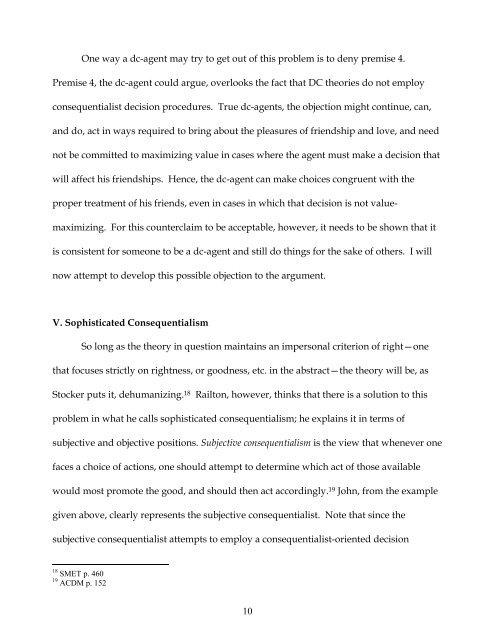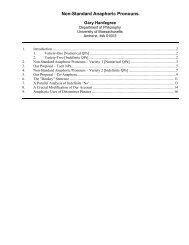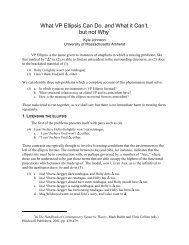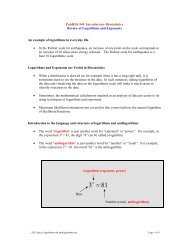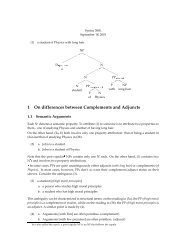1 Confessions of a Moral Schizophrenic* By Jayme Johnson I ...
1 Confessions of a Moral Schizophrenic* By Jayme Johnson I ...
1 Confessions of a Moral Schizophrenic* By Jayme Johnson I ...
Create successful ePaper yourself
Turn your PDF publications into a flip-book with our unique Google optimized e-Paper software.
One way a dc-agent may try to get out <strong>of</strong> this problem is to deny premise 4.<br />
Premise 4, the dc-agent could argue, overlooks the fact that DC theories do not employ<br />
consequentialist decision procedures. True dc-agents, the objection might continue, can,<br />
and do, act in ways required to bring about the pleasures <strong>of</strong> friendship and love, and need<br />
not be committed to maximizing value in cases where the agent must make a decision that<br />
will affect his friendships. Hence, the dc-agent can make choices congruent with the<br />
proper treatment <strong>of</strong> his friends, even in cases in which that decision is not valuemaximizing.<br />
For this counterclaim to be acceptable, however, it needs to be shown that it<br />
is consistent for someone to be a dc-agent and still do things for the sake <strong>of</strong> others. I will<br />
now attempt to develop this possible objection to the argument.<br />
V. Sophisticated Consequentialism<br />
So long as the theory in question maintains an impersonal criterion <strong>of</strong> right—one<br />
that focuses strictly on rightness, or goodness, etc. in the abstract—the theory will be, as<br />
Stocker puts it, dehumanizing. 18 Railton, however, thinks that there is a solution to this<br />
problem in what he calls sophisticated consequentialism; he explains it in terms <strong>of</strong><br />
subjective and objective positions. Subjective consequentialism is the view that whenever one<br />
faces a choice <strong>of</strong> actions, one should attempt to determine which act <strong>of</strong> those available<br />
would most promote the good, and should then act accordingly. 19 John, from the example<br />
given above, clearly represents the subjective consequentialist. Note that since the<br />
subjective consequentialist attempts to employ a consequentialist-oriented decision<br />
18 SMET p. 460<br />
19 ACDM p. 152<br />
10


